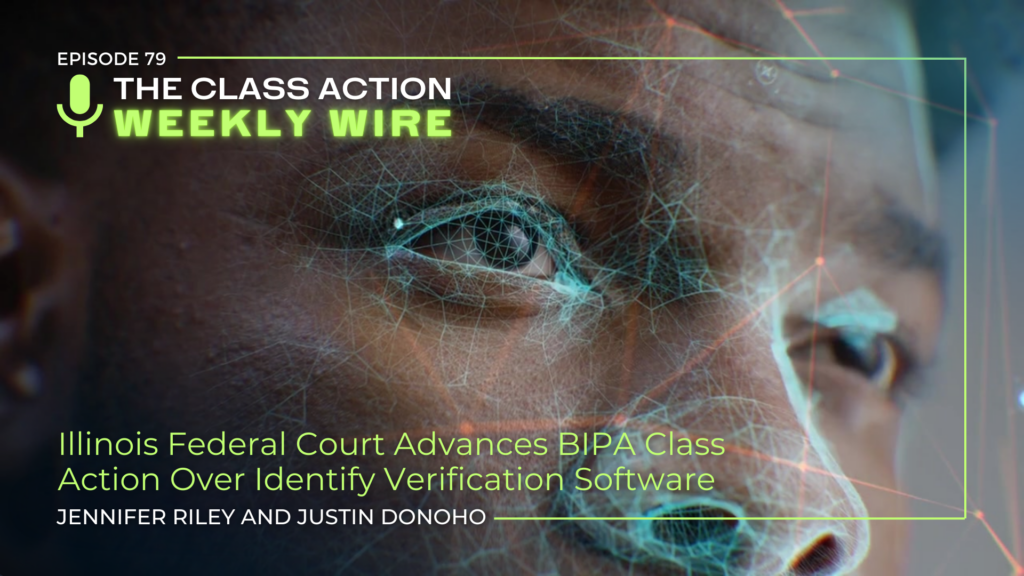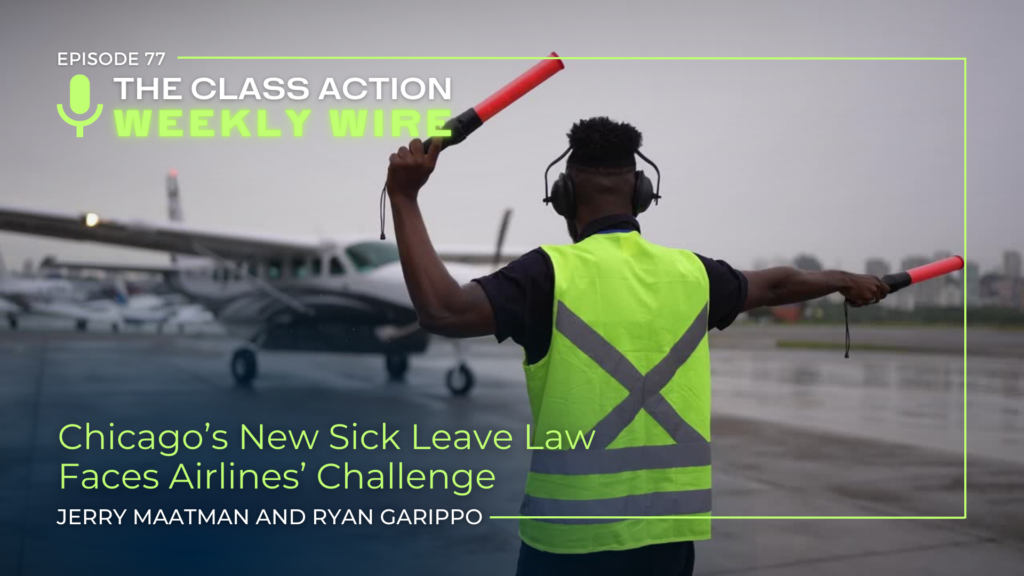By Gerald L. Maatman, Jr., Jennifer A. Riley, Justin Donoho, and Ryan T. Garippo
Duane Morris Takeaways: On October 24, 2024, in Vita v. New England Baptist Hospital, 2024 WL 4558621 (Mass. Oct. 24, 2024), the Supreme Judicial Court of Massachusetts ordered dismissal of a claim that a healthcare company’s use of website advertising technology violated the Massachusetts Wiretap Act. The ruling is significant as it shows that in the hundreds of adtech class actions across the nation seeking millions or billions of dollars in statutory damages under various criminal wiretap acts with civil remedies provisions, the rule of lenity applies, thereby entitling defendants to the benefit of any rational doubt in the construction of the statute and, accordingly, defeating plaintiffs’ mammoth statutory damages claims.
Background
This case is one of a legion of class actions that plaintiffs have filed nationwide alleging that Meta Pixel, Google Analytics, and other similar software embedded in defendants’ websites secretly captured plaintiffs’ web browsing data and sent it to Meta, Google, and other online advertising agencies. This software, often called website advertising technologies or “adtech,” is a common feature on millions of corporate, governmental, and other websites in operation today. In adtech class actions, the main event is often a claim brought under a federal or state wiretap act, a consumer fraud act, or the Video Privacy Protection Act, because plaintiffs often seek millions and billions of dollars, even from midsize companies, on the theory that hundreds of thousands of website visitors, times $10,000 per claimant in statutory damages under the Federal Wiretap Act, for example, equals billions. Plaintiffs have filed the bulk of these types of lawsuits to date against healthcare providers, but they have filed suits against companies that span nearly every industry including retailers, consumer products, and universities. Several of these cases have resulted in multimillion-dollar settlements, several have been dismissed, and the vast majority remain undecided.
In Vita, the plaintiff brought suit against a hospital. According to the plaintiff, the hospital installed the Meta Pixel and Google Analytics on its public-facing website, thereby transmitting to Meta and Google, allegedly without the plaintiff’s consent, the following information: (1) title and URL of the hospital’s web pages she visited; (2) any hospital department she selected (e.g., obstetrics); (3) any search terms she entered; (4) any filtering criteria she used on a “Find a Doctor” webpage, including specialty, location, gender, and language; and (5) whether she navigated to the hospital’s patient portal, although not the contents of records or communications within that portal. Id. at *3.
Based on these allegations, the plaintiff claimed that the hospital aided Meta and Google to intercept her communications in violation of the Massachusetts Wiretap Act, G. L. c. 272, § 99. The hospital moved to dismiss, arguing that plaintiff’s interactions with the hospital’s website did not fall within the meaning of “wire communication[s]” protected by the Massachusetts statute. Id. at *1. The trial court denied the motion and sent it directly to Massachusetts’ Supreme Judicial Court, which accepted the direct appeal.
The Supreme Judicial Court’s Opinion
In one of the first appellate decisions anywhere deciding whether the events alleged in an adtech class action complaint violated a wiretap act, the Supreme Judicial Court agreed with the hospital and ordered dismissal of the plaintiff’s wiretap claim.
The Massachusetts Wiretap Act makes it a crime to willfully commit an “interception,” meaning “to secretly hear, secretly record, or aid another to secretly hear or secretly record the contents of any wire or oral communication….” Id. at *7 (quoting statutory definition). Violators are punishable by a fine of up to $10,000, imprisonment for up to five years, or a combination of fines and imprisonment. Id. at *7. The Massachusetts Wiretap Act also provides a private right of action for any person aggrieved by an interception. Id. at *6. Each civil claimant is entitled to statutory damages in the amount of “$100 per day for each day of violation or $1000, whichever is higher.” Id. at *7.
The claimant in Vita contended that the meaning of “communication” is broad enough to encompass all interactions with the hospitals’ websites when those websites were visited by her and an alleged class of other website visitors. The Supreme Judicial Court held that “the statutory term ‘communication’ is ambiguous as applied to the web browsing activities allegedly intercepted. Neither the plain text of the statute nor dictionary definitions make clear whether such activity amounts to ‘communication,’ and the legislative history is concerned with a different type of surveillance. Thus, the rule of lenity must apply, thereby entitling the defendants to the benefit of any rational doubt in the construction of the statute.” Id. In explaining its reasoning on applying the rule of lenity, the Supreme Judicial Court stated that “while the instant cases concern civil liability under the wiretap act, the act also has significant criminal penalties, including up to five years in State prison, and accordingly, the rule of lenity should be applied.” Id. at *15 (collecting authorities). In conclusion, the Supreme Judicial Court summarized its opinion as follows: “In sum, the statutory language is ambiguous, and the legislative history is not helpful regarding whether the alleged interceptions of Vita’s uses of the hospitals’ websites are interceptions of “communications” within the meaning of the wiretap act and thereby potentially subject to both civil and criminal penalties. Therefore, the rule of lenity applies, and Vita’s claims against the hospitals, which are based on the wiretap act alone, should be dismissed.” Id. at *16.
Implications For Companies
Vita provides powerful precedent for any company opposing adtech class action claims under any state or federal wiretap act in which statutory terms are ambiguous. Consider, for example, the numerous adtech class actions featuring a claim under the Federal Wiretap Act and seeking millions or billions of dollars in statutory damages. Some courts have dismissed these claims (as discussed in our previous blog entry about a recent win for adtech defendants, here). Other courts, interpreting the same statutory provisions and applying them to similar adtech class action allegations, have refused to dismiss these claims, allowing them to proceed to costly merits, class certification, and expert discovery. These differing interpretations of statutory terms by different courts suggest those terms are ambiguous. Vita instructs that the rule of lenity thus applies, thereby entitling defendants to the benefit of any rational doubt in the construction of the statute and, accordingly, defeating plaintiffs’ mammoth statutory damages claims.










